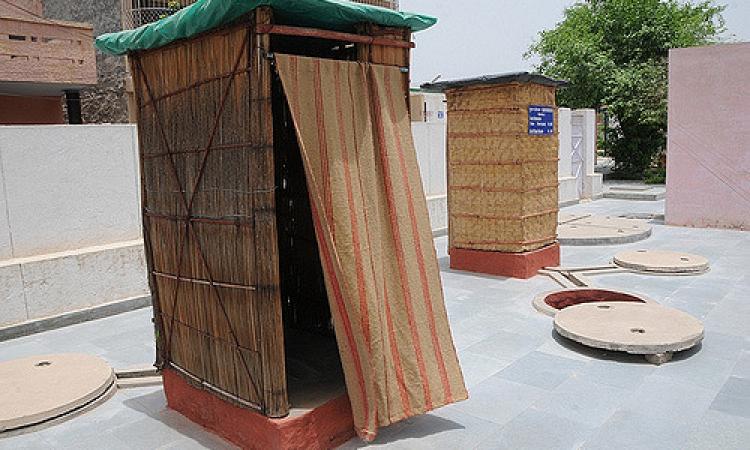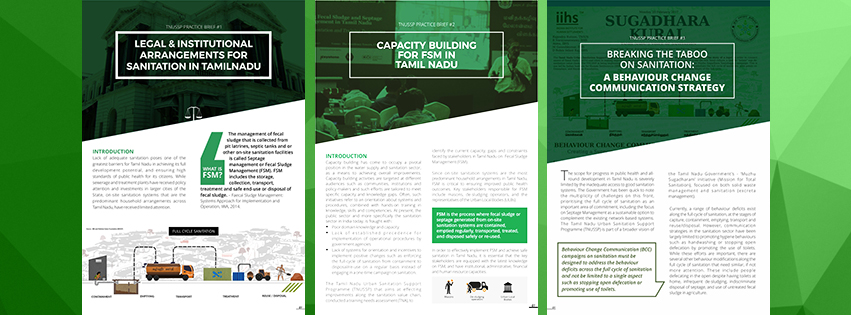
The Tamil Nadu Urban Sanitation Support Programme (TNUSSP) has published three practice briefs that present the research findings as well as learning from the various components of TNUSSP. These briefs are targeted mainly at FSM practitioners, researchers and academic institutions.
The practice briefs are:
1. Legal and Institutional Arrangements for Sanitation in Tamil Nadu: The TNUSSP undertook a study to map the institutional arrangements, laws, and regulations that govern sanitation in Tamil Nadu with respect to the full cycle of sanitation (FCS). The findings show that the current legal and institutional arrangements take a technocratic view of the challenges in the FCS rather than a public health approach. This practice brief provides a summary of this review along with the key areas of improvement, and a roadmap to achieve 100 percent safe sanitation and improved public health outcomes in the state.
Click here for the details of the study.
2. Capacity Building for FSM in Tamil Nadu: At present, the public sector and more specifically the sanitation sector in India is fraught with i) poor domain knowledge and capacity; ii) lack of established precedence for implementation of operational procedures by government agencies; and iii) lack of systems for orientation and incentives to implement positive changes such as enforcing the FCS on a regular basis instead of engaging in a one-time campaign on sanitation. In this context, the TNUSSP has carried out a multi-pronged approach towards addressing the capacity building gaps along the FCS. In this practice brief, findings from Training Needs Assessment of Masons and ULB officers and capacity building efforts such as the domestic and international exposure visits, and orientation programmes for officers and de-sludging operators are discussed in detail.
Click here and here for the details of the two studies.
3. Breaking the Taboo on Sanitation–A Behaviour Change Communication Strategy: In Tamil Nadu, communication strategies in the sanitation sector have been largely limited to promoting hygiene behaviours such as handwashing or stopping open defecation by promoting the use of toilets. While these efforts are important, there are several other behaviour modifications, along with the full cycle of sanitation (FCS), that need similar, if not more attention. Hence, the TNUSSPs Behaviour Change Communication (BCC) strategy has been framed to consist of campaigns, events and materials to address multiple behaviour deficits along the FCS. This brief details the strategy that has been conceptualised to include segmentation and targeting of those who tend to embrace changes and newness (innovators and early adopters); evoke the benefits of new behaviour and the cost of current unsanitary practices; as well as promote a positive, aspirational position to evoke adoption of the ‘new way’.
Click here for the detailed strategy.

Tamil Nadu Urban Sanitation Support Programme (TNUSSP) supports the Government of Tamil Nadu (GoTN) and select cities in making improvements along the entire urban sanitation value chain. The TNUSSP is being implemented by a consortium of organisations led by the Indian Institute for Human Settlements (IIHS), in association with CDD Society, Gramalaya and Keystone Foundation. You can find out more about TNUSSP at http://muzhusugadharam.co.in/tnussp/